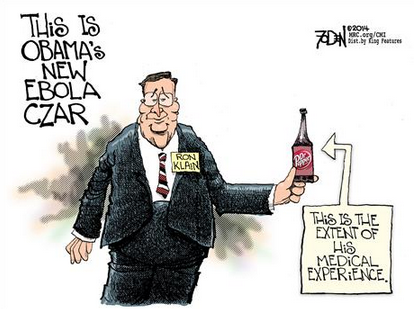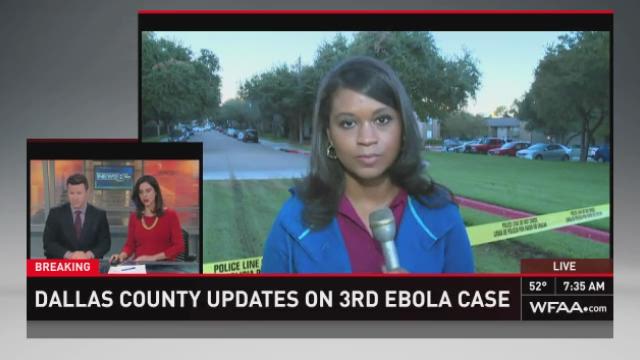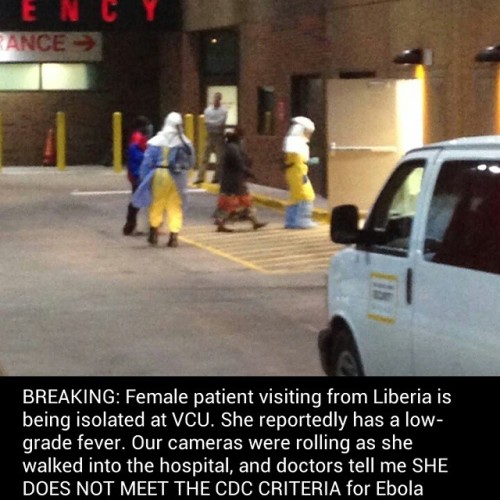 © Provided by The Philippine Star
President Aquino disclosed yesterday that Filipinos in Ebola-hit countries might have to be brought home.
Speaking
at the 65th Session of the World Health Organization (WHO) Regional
Committee for the Western Pacific at the Philippine International
Convention Center in Pasay City, Aquino assured the public that the
government had imposed stricter measures to keep the country free from
the virus.
“Among the
questions we need to keep asking ourselves are: How can we best educate
our countrymen about these outbreaks, without spreading fear and panic?”
he said.
“Is there an
efficient and safe way to monitor our countrymen’s exposure to diseases,
and to repatriate them, while ensuring their health, as well as that of
the general populace?”
Aquino said the Philippines would cooperate with the rest of the world in protecting people from these outbreaks.
© Provided by The Philippine Star
President Aquino disclosed yesterday that Filipinos in Ebola-hit countries might have to be brought home.
Speaking
at the 65th Session of the World Health Organization (WHO) Regional
Committee for the Western Pacific at the Philippine International
Convention Center in Pasay City, Aquino assured the public that the
government had imposed stricter measures to keep the country free from
the virus.
“Among the
questions we need to keep asking ourselves are: How can we best educate
our countrymen about these outbreaks, without spreading fear and panic?”
he said.
“Is there an
efficient and safe way to monitor our countrymen’s exposure to diseases,
and to repatriate them, while ensuring their health, as well as that of
the general populace?”
Aquino said the Philippines would cooperate with the rest of the world in protecting people from these outbreaks.
“I
speak for myself and my government when I say that we will continue to
exert every effort and undertake all possible initiatives to find
answers to these questions and keep our countrymen safe and healthy as
pandemics threaten to spread,” he said.
“However,
we can all agree that we work better, and more efficiently, when we
work with others, whether to monitor and contain outbreaks, or to meet
the Millennium Development Goals, or to anticipate and prepare for
global health concerns.”
Aquino
said that through WHO’s establishment and participation in various
events, countries were strengthening the ties binding them and affirming
their duty to their countrymen and fellowmen.
“For
instance, outbreaks of illnesses and diseases like the Middle East
Respiratory Syndrome-Coronavirus (MERS-CoV) and Ebola are among the
greatest challenges the world faces today,” he said.
“For
the Philippines, specifically, the fact that we have 10 million of our
countrymen living and working abroad makes these kinds of outbreaks a
paramount concern.
“This
year, the MERS Coronavirus broke out and spread in the Middle East.
Based on current reports, the mortality rate for MERS Coronavirus ranges
from 30 to 60 percent; and, of course, our first thought immediately
went to the more than a million Filipinos living and working in the
Middle East.”
Aquino said the
matter was complicated further, when during the Holy Week holiday,
authorities received belated news that an overseas Filipino worker (OFW)
afflicted with the virus had arrived in the country, and that he had
traveled to his home province.
“You
can imagine how critical the situation seemed: it was necessary to
track down every person on that flight, quarantine and test them at the
soonest possible time,” he said. “Thankfully, the test results came back
negative. That rather harrowing time gave us the chance to take a good
look at our systems, to identify areas that could be improved upon, and
to make those improvements. Soon after, I signed an executive order
creating an interagency task force to manage emerging infectious
diseases in the country; and even now, the work continues.”
The
Department of Health (DOH) had been tasked to continue to educate the
public about the deadly diseases without causing fear and panic, and to
come up with an efficient and safe way to monitor the exposure of people
to such diseases, Aquino said.
OFW medical clearance
Speaking
to reporters on the sidelines of the same forum, Health Secretary
Enrique Ona said he is proposing to require OFWs to secure medical
clearance before returning home.
“For
example, we are now making arrangements that the Filipino workers… and
they are something like almost 3,000, before they can come home, we will
require them to have a so-called medical clearance,” he said.
Ona
said a medical clearance would indicate whether a Filipino had been
exposed to a person infected with or who died from Ebola.
OFWs
would have to give themselves 21 days from the time they planned to
board their flight to observe whether they have symptoms of Ebola virus
infection, he added.
Ona said this would not be difficult to do except in times of emergency because travel arrangements are done in advance.
“And if there are no symptoms… he will be given a medical clearance and he can go home,” he said.
“That is our proposal, we are not implementing it yet.”
OFWs showing symptoms like influenza would be asked to report to a hospital and remain confined for 21 days, he added.
Ona said the government has not yet decided whether to send health workers to Ebola-hit countries.
“This is a global health care concern… what we are discussing is that we cannot just (send workers),” he said.
“Of
course we will think about it but the countries would help. We will be
helping whether in kind or whatever. But… nothing is decided yet.”
Passengers are being screened at the airports since three weeks ago to avoid the spread of contagious diseases, he added.
Ona
said the DOH is upgrading the laboratory capacity of the Research
Institute for Tropical Medicine (RITM) in Muntinlupa in preparation for
the possible entry of the Ebola virus.
The
country needs to have “bio-safety level (BSL)-3” laboratory to
effectively detect and do research on infectious diseases like the Ebola
virus, he added.
The DOH is allocating some P500 million to put up the laboratory.
RITM
director Socorro Lupisan said they now have a BSL-2 laboratory, which
might not be equipped to deal with emerging pathogens like the Ebola
virus.
“Right now, we are working on BSL-2 facilities but with the practices under BSL-3,” she said.
“We
hope we get the BSL-3 to make sure even our laboratories are safe, that
they are working in a safe environment. But of course, the actual
practices are included there.”
Lupisan
said a BSL-2 laboratory may be closed but air can still circulate,
while a BSL-3 involves a high-containment laboratory.
“It’s enclosed, with negative pressure room, going in and going out,” she said. “The air is being filtered.”
Such
a facility would mean that the Philippines will no longer have to send
specimens to other countries like Japan for tests, Lupisan said.
The DOH and the RITM are now consulting with WHO and Japan for the establishment of a BSL-3 laboratory.
‘Avoid Ebola countries’
Filipinos were advised yesterday to refuse work in Ebola-affected countries.
Labor
Secretary Rosalinda Baldoz said Filipino nurses and other health
workers must not risk accepting jobs in Guinea, Liberia and Sierra
Leone.
“We have an existing
deployment ban in those countries which means their employment papers
will not be legally processed,” she said.
“If they entertain such offers, they will just run the risk of being victimized by illegal recruiters.”
The
Department of Labor and Employment (DOLE) will rely on the
recommendation of the Department of Foreign Affairs (DFA) and the DOH on
whether to allow the re-entry of Filipino workers to these three
countries, Baldoz said.
Health workers are now in demand in the three West African countries due to the growing number of people afflicted with Ebola.
However, the government has banned the deployment of Filipino workers to the three countries due to the Ebola epidemic.
http://www.msn.com/en-ph/news/other/gov%E2%80%99t-mulls-bringing-home-pinoys-in-ebola-hit-countries/ar-BB97oS0













